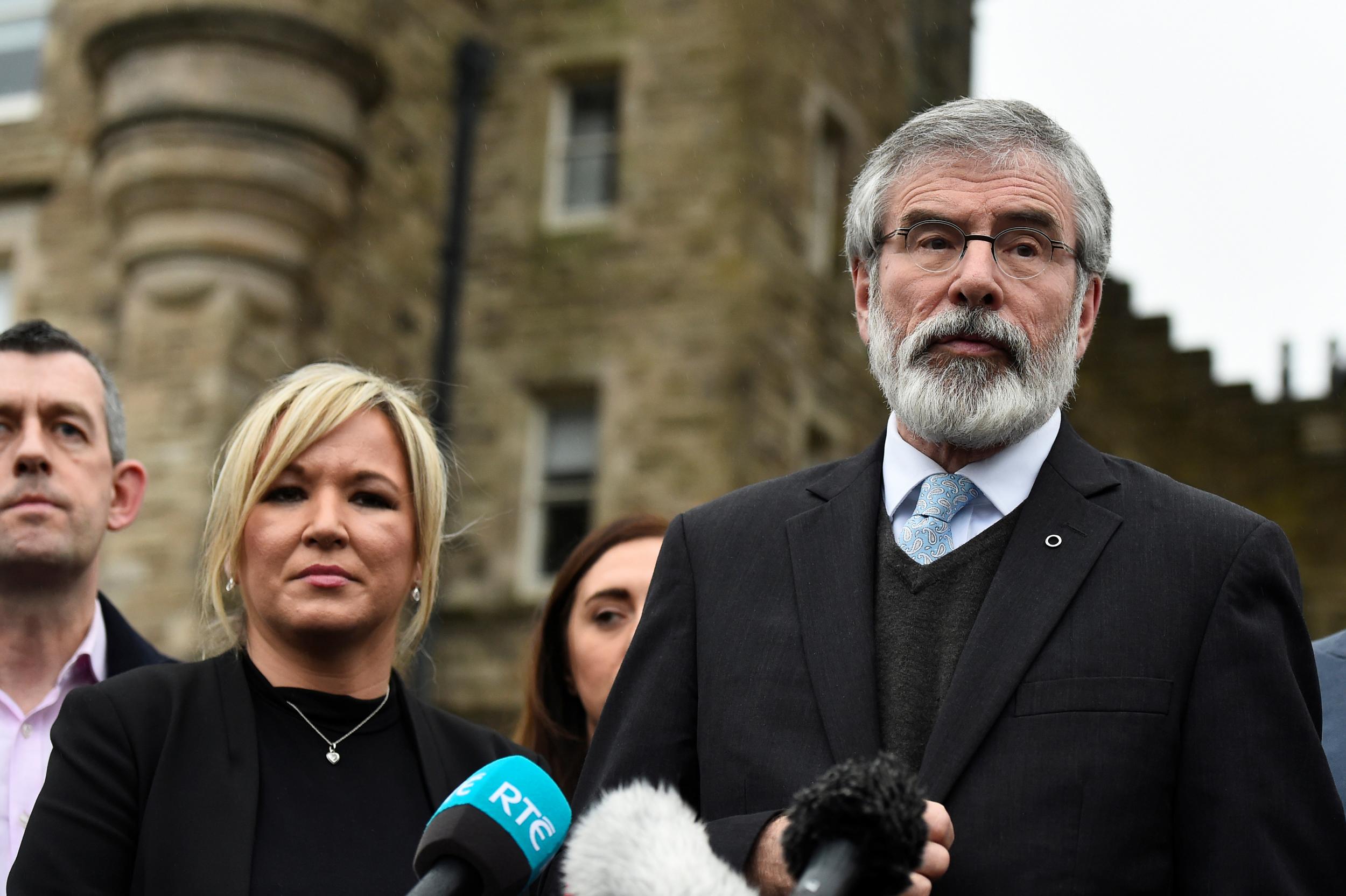Northern Ireland power-sharing talks break down as Sinn Fein withdraws
'Today we have come to the end of the road,' leader Michelle O'Neill says

Your support helps us to tell the story
From reproductive rights to climate change to Big Tech, The Independent is on the ground when the story is developing. Whether it's investigating the financials of Elon Musk's pro-Trump PAC or producing our latest documentary, 'The A Word', which shines a light on the American women fighting for reproductive rights, we know how important it is to parse out the facts from the messaging.
At such a critical moment in US history, we need reporters on the ground. Your donation allows us to keep sending journalists to speak to both sides of the story.
The Independent is trusted by Americans across the entire political spectrum. And unlike many other quality news outlets, we choose not to lock Americans out of our reporting and analysis with paywalls. We believe quality journalism should be available to everyone, paid for by those who can afford it.
Your support makes all the difference.Power-sharing talks in Ireland have broken down after Sinn Fein took the decision to withdraw, claming the process had "run its course".
Another Stormont crisis was triggered as the republican party said it would not be nominating a deputy first minister on Monday, the deadline for Northern Ireland's five main parties to resolve their differences or face another snap election after power-sharing broke down in January.
However President Gerry Adams said he believed the conditions to go back into power-sharing would be achieved in time.
Ms O'Neill said: "Today we have come to the end of the road.
"The talks process has run its course and Sinn Fein will not be nominating for the position of speaker or for the executive office tomorrow."
Power-sharing collapsed following a row over a botched green energy scheme predicted to cost the taxpayer up to half a billion pounds.
Sinn Fein has said it will not share power with the Democratic Unionists' leader Arlene Foster as first minister until a public inquiry into the renewable heat incentive (RHI) is concluded.
Republicans have also been seeking movement on issues like an Irish language act giving the tongue official status in Northern Ireland, a hugely symbolic measure but deeply problematic for some unionists.
They also want to see progress on legacy funding for Northern Ireland conflict victims waiting up to 45 years for answers over how their loved ones died.
Mr Brokenshire is chairing talks in Belfast and said they had a duty to victims to address past violence which left 3,637 dead and countless more injured.
Irish Foreign Secretary Charlie Flanagan said the imminent triggering of Article 50, which will commence Britain's Brexit negotiations with Europe, makes it "a critical time for Northern Ireland."
"Despite constructive engagement by all of the parties and important progress being made during these discussions, it has not yet been possible to make the necessary breakthroughs on a number of core issues," he said.
"This is a critical time for Northern Ireland. We are on the cusp of the triggering of Article 50 by the UK Government. It is the strong wish of the Irish Government to see power-sharing re-established so that the interests of the people in Northern Ireland are best protected and advanced. I therefore urge the parties to avail of the remaining time available to re-engage on the few outstanding issues that divide them."
Mr Adams said thinking unionism was at a crossroads.
"The DUP cannot be in there representing the DUP voters," he said.
"They have to work with us and any other party in there representing everyone.
"We don't have the basis for doing that, we are not going back to the status quo, but will we be back, will we get the institutions in place? Yes."
He said the terms did not exist now to nominate for a deputy first minister.
"That is today...we do believe that we will have the conditions in the time ahead because we want to be in the institutions."
He said unionists needed to help build a society that respected the rights of everyone.
"That is the big change that has come about and it is amplified in many ways by Martin McGuinness's term in office, you do it for everybody."
A voting surge by Sinn Fein in the last Assembly election earlier this month saw the party come within one seat of becoming the biggest party at Stormont behind the DUP.
Additional reporting by agencies
Join our commenting forum
Join thought-provoking conversations, follow other Independent readers and see their replies
Comments